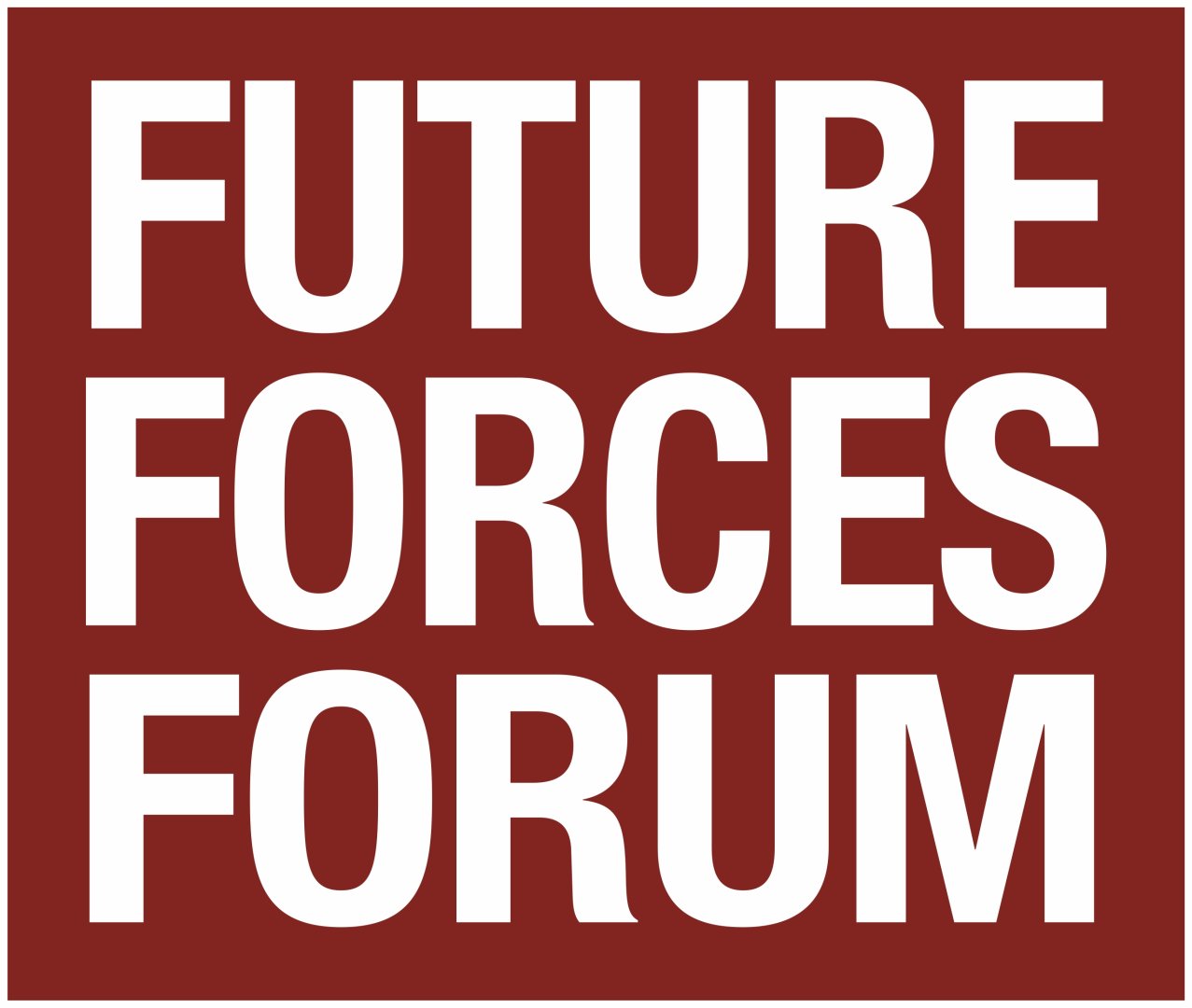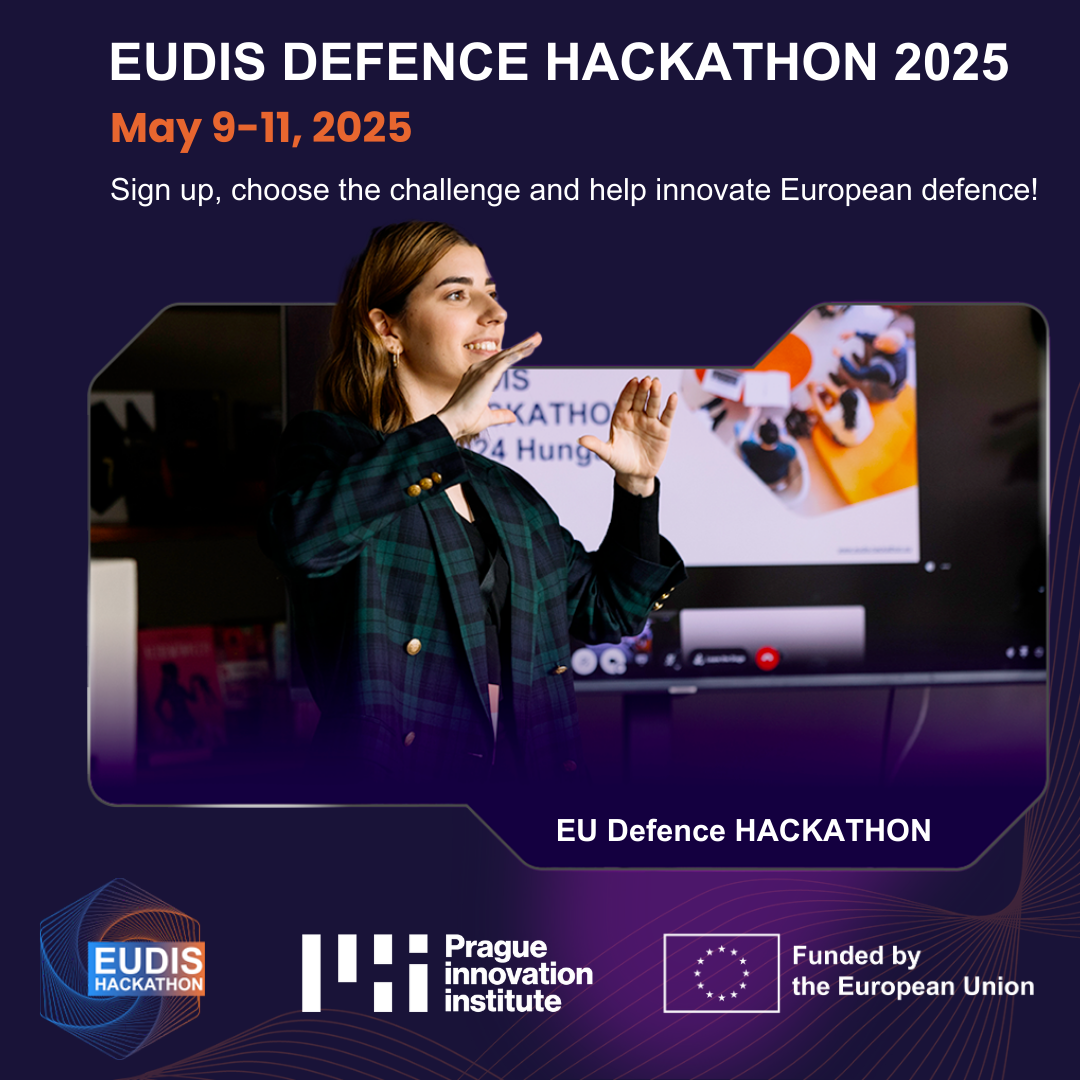 |
|
|
|
Organizer |
 |
|
|
|
General Partner |
 |
|
|
|
Partners |
   |
EUDIS DEFENCE HACKATHON AND MENTORSHIP PROGRAMME
The EUDIS Defence Hackathon will be hosted in eight simultaneous hackathons at different national locations across EU Member States and Norway that tackle pressing defence challenges for the European Defence industry.
In addition to local prizes, the eight national hackathon winners gain access to 40 hours of mentoring programme held over two months, get to pitch in front of EU Member States representatives, and the top three EU-wide winners get to attend an international high-tech event to pitch their solutions. The mentoring programme will support the eight winning teams in building sustainable and successful businesses, introducing them to important defence knowledge and contacts.
EUDIS Hackathon 2025 is organized under the auspices of the European Commission as a part of the EU Defence Innovation Scheme (EUDIS) and is funded and closely linked to the European Defence Fund (EDF).
"Rapid Defence Solutions for the Ukrainian Battlefield and Beyond"
CHALLENGES: Which one will you solve?
1. Enhanced Situational Awareness and Tactical Surveillance Systems
This challenge aims to deliver affordable and portable surveillance systems that will improve the situational awareness of Ukrainian military units. Ukrainian Armed Forces operate in hostile conditions where access to real-time intelligence is crucial for tactical decision-making. This requires adaptable surveillance tools that can gather, process, and transmit critical data on enemy movements, environmental hazards, and other operational threats. Surveillance systems should be designed for ease of deployment, able to withstand harsh environments and rapid movement across diverse terrains or in the air/water. Multi-functional systems that integrate reconnaissance, communication relays, and environmental sensing will be essential, reducing the burden on personnel and enabling comprehensive intelligence-gathering from a single platform. Ultimately, this challenge emphasizes the need for resilient and flexible surveillance solutions that can provide frontline personnel with a continuous flow of actionable information, supporting their effectiveness and safety on the battlefield.
2. Cost-Effective Protective Gear for Frontline Defence
This challenge focuses on equipping soldiers with high-quality, lightweight protective gear that is both affordable and easy to produce. The protection and mobility of frontline personnel are paramount, and therefore, body armour and helmets must offer superior ballistic protection while remaining light and comfortable enough to support prolonged use in active combat. In addition to providing robust physical protection, protective gear should incorporate modular design features, allowing soldiers to attach necessary add-ons, such as communication devices and health-monitoring sensors, to better respond to mission-specific needs. The adaptability of such gear would enhance situational awareness and operational flexibility in various combat contexts. With scalability as a key requirement, these solutions must be designed for efficient, low-cost production to ensure that adequate protection can be made available to a large number of troops, contributing to Ukraine's capacity for sustained defence.
3. Advanced Medical Support for Frontline Care
This challenge seeks to develop advanced, AI-driven tools that support both medics and soldiers in quickly diagnosing injuries and determining the priority of care under high-pressure conditions. Soldiers in the field often face immediate medical needs or need to assist injured comrades before a medic arrives, and AI-powered systems can play a crucial role in guiding these fast-response actions. Injury assessment tools that use image recognition and vital sign data will help all personnel instantly categorize and understand wound severity, aiding rapid decision-making in high-stress scenarios. Wearable health sensors that continuously monitor vital signs will allow for real-time tracking of a soldier's health status, ensuring that any deterioration is swiftly identified, even in remote settings and support can be deployed proactively. Additionally, automated triage systems that allocate resources efficiently based on injury severity and availability will enable both medics and soldiers to deploy resources optimally, ensuring that the most urgent cases receive timely attention. By enhancing frontline care capabilities and empowering soldiers with life-saving tools, this challenge aims to bolster resilience and improve survival outcomes on the battlefield.

HACKERS: Who can participate?
You must be a citizen AND resident from EU/Norway/Ukraine and be 18 years or older to participate in the hackathon competition. Failure to provide proof during the hackathon on such terms will disqualify you. All teams must have at least 2 members and a submitted project.
IMPORTANT DATES
Registration closes: 5 May
The final date to register for the hackathon. Make sure your team is signed up and ready by this date!
Hackathon weekend: 9 - 11 May
Across eight simultaneous locations in Europe teams develop solutions to three important defence challenges.
Mentorship program: 15 May - 9 July
Engage in a focused mentorship phase where you'll refine your ideas with the help of experienced mentors and prepare your solutions for the hackathon.
Live pitching in front of EU member states
After the mentorship program, winners will have the unique opportunity to participate in an exclusive EU-wide live pitching competition on 9 July 9 2025. This is an exciting next step for the top teams to showcase their innovative solutions, compete against other top participants across Europe, and potentially secure further EU recognition and awards.
CONTACT for Partners, Hackers, Mentors and Participants
Mr. Albert Bouchal
[email protected]
+420 771 503 377
Pražský inovační institut, z. ú. / Prague Innovation Institute



